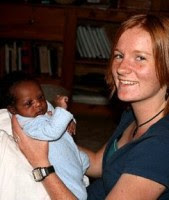
Communicating With Parents
Communication is an essential part of the home and school relationship and it's long been known that parent involvement relates positively to student achievement - including interest and motivation. Learn-Now now has the means to finally bring parents alongside the journey their children are on. We're trialing with one school team of parents to start with - where a team of 28 students are enrolled in Learn-Now.

Launching the Parent Lounge
This week launched the online community built especially for parents with children enrolled Learn-Now. The Parent Lounge is exclusively for parents to connect and share information and thoughts around their child's experience in Learn-Now. The lounge is designed to be as much a source of information as it is interaction... It's new though, and it's a case of make-it-up as we go, but hopefully the invited team's a forgiving bunch. It's a trial and much will be determined by how well we can engineer Elgg's functionality, as to how long it may continue, or at what point we invite a second team of parents in.
Communication Beyond The Projects...

Understandably, project life will be shared, but it's more than that... It's sharing the energy behind the beauty of what teaching and learning online now involves. It's involving them in the fun of it - actively so if they're open to it. It's taking the distance out of what can often exist between home and school. It's inviting them to also take part in what the students are doing, perhaps for most not directly, but in ways that'll enable them to at least get a taste. Above all, it's about building that community of practice (CoP) - their children aren't just 'a class', but members of another whole community...but just who? The lounge will share...

...and then there's Twitter and Facebook
Online Parent Lounges should have a place in all schools and beyond, on a platform such as this, via Twitter and Facebook, or combination of all - it's great way to reach plugged-in parents. Newsletters sent home in backpacks are so old school. We ourselves need to be more active with our Twitter and Facebook account (and will)...but neither give us much scope to really chat out the Q/As, insights and shared content matter. Tis a shame the students can't drive them though - being under 13 years old and legal about it, has its downsides...
Meanwhile though, bring on the Parent Lounge!
Learn-Now parents can now enjoy the journey with us as well.












